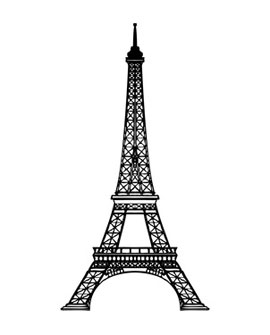 La belle France, a country with a strong aesthetic tradition, widely admired for its taste in style, luxury, and beauty, and where those with an eye for professional primping à la Française continue to pamper themselves – albeit with notable moderation finds our research on professional skin care, beauty devices, and salon hair care markets in France.
La belle France, a country with a strong aesthetic tradition, widely admired for its taste in style, luxury, and beauty, and where those with an eye for professional primping à la Française continue to pamper themselves – albeit with notable moderation finds our research on professional skin care, beauty devices, and salon hair care markets in France.
When it comes to professional skin care, the discerning French bon vivant is right at home in the largest market, with France accounting for over 20% of skin care product sales in Europe. This figure has remained stable through 2012, save for incremental growth of 0.9%. Ongoing challenging market conditions have seen Guinot, the country’s largest professional skin care brand, which enjoys a loyal clientele, suffer a drop in sales. Conversely, Clarins and Sothys both experienced growth in this period.
France’s aging but vibrant population remains the most vigorous consumer market, with anti-aging products accounting for over 43% of take-home face care sales.
The spas channel is evolving, with various hotel and resort spas reaching out to new customers and plenty of new day spas opening in different regions. Despite not being devoid of challenges, luxury spas in Paris and the Côte d’Azur are still attracting the most clientele.
The fortunes of beauty institutes differ according to their target markets. Those servicing the mid segment are suffering as a result of lower consumer spending, while the lower end of the market is growing strongly with the multiplication of beauty institutes working under franchise and/or located within retail stores. High end beauty institutes continue to perform well, particularly in the hair salon and hospitality sectors.
European consumers, sensing financial insecurities and with an increasing appetite for products that are relatively inexpensive compared to multi-series professional treatments, are turning to at-home beauty devices, thereby positioning this energized market among the fastest growing in Europe. France, with an estimated 15% of the total European market share, is the third leading country in sales of at-home beauty devices. This robust growth is partly being driven by Galvanic Spa of Nu Skin Enterprise Ltd. with the launch of a new Galvanic Spa Body device in France, the company’s largest market. The Galvanic Spa Body device utilizes pulsating galvanic technology which maximizes anti-aging effects on the abdomen, arms, buttocks, and thighs. These useful beauty gadgets tend to bridge the gap between professional over-the-counter treatment products and costly treatments at spas and doctors’ practices. While the hair removal device segment is well serviced, the key skin care concerns of anti-aging and cellulite/body toning remain under penetrated. Despite this largely under serviced demand, the anti-aging skin care segment is anticipated to register low growth as a consequence of being coasted out of the ongoing and particularly price-sensitive flagging economy in Europe. Conversely, at-home beauty devices offering multiple benefits will be a large driving force during the forecast period.
Multi-functionality is what’s in demand among consumers visiting Parisian hair salons. Products and treatments formulated with specific active ingredients including hyaluronic acid, natural ingredients including marine extracts and plant extracts are being sought out by discerning French consumers. Hair oils are becoming more mainstream and continuing to perform very well. While French consumers are extending intervals between salon appointments, they are also notably increasing their expenditure during each visit.
Although Paris is home to celebrity hair coiffeurs and their most luxurious hair salons, the market struggles to recover from the 2009 downturn and hair salon product sales are waning slightly, with the weight of traditional services like cutting and styling becoming less important in overall salon revenue, while more technical services like hair coloring continuing to gain in importance. While the large majority of sales are generated through salons, salon hair care brands are also being sold in professional stores, which are growing in number with manufacturers such as Generik and hair salon groups such as Provaillance also opening their own professional stores. Independent hair salons are becoming smaller in number, and the greater trend consists of salons working under franchise, particularly in the low-cost segment.
Kline’s research from professional markets and unique coverage of the global beauty devices allow you the savoir faire to advantageously tap into these markets.

